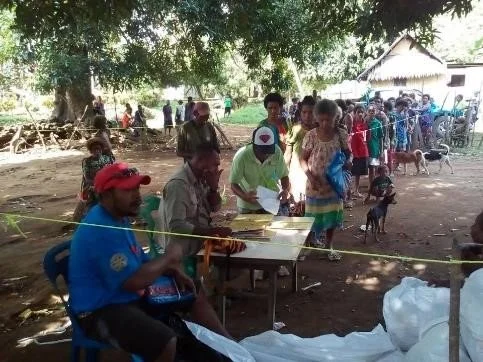FREE BOOK OFFER
Insecticide Treated Nets no longer work as they once did!
Billions of dollars wasted as malaria increases worldwide!
Long Lasting Insecticidal Nets (LLINs) were first introduced in Papua New Guinea (PNG) in 2007, and malaria rates reduced each year to 2015. From 2016 onwards, malaria started to rise and has continued to do so since.
From 2007 to 2019, PNG received LLINs from a single manufacturer for its national malaria program. Between 2007 and 2013, these nets killed 100% of mosquitoes when new and remained effective for over 5 years. But from 2014 onward, the same LLIN brand failed to kill all mosquitoes even when new, and lost most of its effectiveness within a year. There is little doubt that the increases in malaria are the result of LLINs losing their efficacy.
Netting Paradise, a book by malaria specialist, Timothy Freeman, documents the rise and fall of LLINs, which have been a key solution to the elimination of malaria worldwide since 2000.
About The Book
LLINs originally caused notable declines in malaria worldwide, including PNG, where the Rotarians Against Malaria (RAM) had been running a country-wide LLIN program since 2010. By 2015, PNG was seeing the lowest levels of malaria ever recorded and was expecting malaria to be eliminated in a few years. In 2016, all this changed.
From 2016, there was a noticeable annual increase in malaria cases in PNG and in many other countries worldwide. In 2018, a scientist from the PNG Institute of Medical Research discovered that the treated nets were not working, and together with RAM, began to investigate the cause. The malaria world did not like the finding.
This is a story about what was discovered on this journey into a global health system mired by fear of rocking the boat, resulting in the waste of millions of dollars on solutions that have been compromised, ultimately putting thousands of people at risk from a preventable disease.
How to read Netting Paradise
Netting Paradise is available free of charge to download. If you like the book, please share with others and feel free to contribute to its production by making a donation. 50% of the funds raised will be used for further malaria research, particularly for the improvement of LLINs, which ultimately still represent the best tool in the fight against malaria if they are improved.
The book can be read as a whole or in parts. If you are only interested in the science, start the book at Chapter Seven. If you want the background to malaria and malaria prevention, PNG, the Rotarians Against Malaria PNG malaria program and its implementing partners, you can start at the beginning of the book. Each chapter is in fact a story in its own right, so can also be read in any order.
“This book has been written to put pressure on donors, the WHO (World Health Organisation), research organisations and manufacturers of mosquito nets to improve LLINs, so we can continue to work towards eliminating malaria worldwide.”
To get a copy of the book, visit the website - https://nettingparadise.com/.
If you have read the book and wish to donate, you can either visit the website above or press the donate button below.

